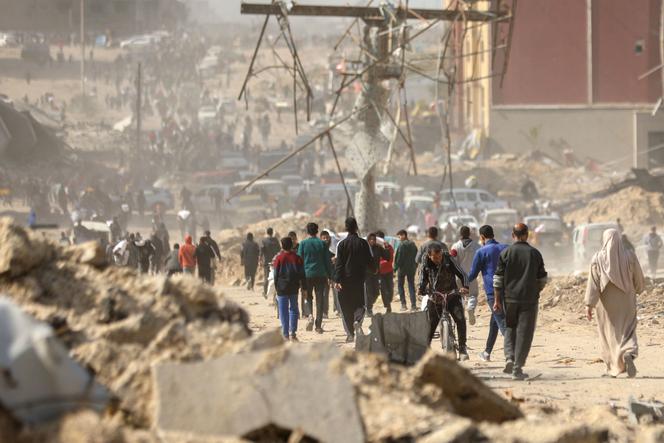


"We are hoping that this war will end leaving our dignity intact and without humiliating us in front of the world," said Oum Khaled Jundia from her makeshift shelter in Khan Yunis, in the south of the Gaza Strip.
She was speaking to one of the Palestinian journalists who risk their lives daily to document the suffering of their compatriots. Her voice weak with exhaustion, she described how her family lost everything when their home in the north of the enclave was bombed and how they had to flee to the unsanitary shelter in which they were now crammed. She spoke of the dead and wounded civilians buried under the rubble and the complete lack of humanitarian aid for the last month.
She was nevertheless resolute in her demand for dignity – invoking the sacrifice of people and property and insisting that the negotiators should never back down on what, in her eyes, is essential. For it is the call for dignity that underpins the Palestinian claim to an independent state.
The Palestinian people's collective consciousness was branded by the trauma of the 1948 Nakba, a catastrophe that uprooted more than half of Palestine's Arab population when Israel was established on three-quarters of Palestinian territory that until then had been under British mandate. The Arab states did not recognize the aspirations to independence of the Palestinian people either, as they were reduced to a scattered community of refugees.
The various Palestinian fedayeen ("freedom fighetrs") groups only emerged very gradually. By advocating an armed struggle for the liberation of Palestine, Yasser Arafat and his Fatah supporters wanted to transform the image of the Palestinian refugee-victim into a militant in command of their own destiny. A parallel can be drawn here with Zionist voluntarism, in its transformation of the oppressed Jew into the armed defender of land and people.
In June 1967, the Six-Day War ended with the Israeli occupation of East Jerusalem, the West Bank and the Gaza Strip. Arafat slipped into the West Bank and escaped being hunted down by the Israelis, but he failed to trigger a widespread uprising. However, he managed to set up Fatah bases on the east bank of the Jordan Valley, particularly in a town that, coincidentally, was called Karama – meaning dignity. In March 1968, the fedayeen refused to withdraw despite an imminent Israeli offensive. Around 100 Palestinian fighters and 60 Jordanian soldiers were killed in the assault as well as 30 Israeli soldiers.
You have 52.21% of this article left to read. The rest is for subscribers only.
